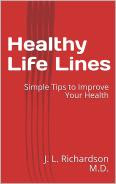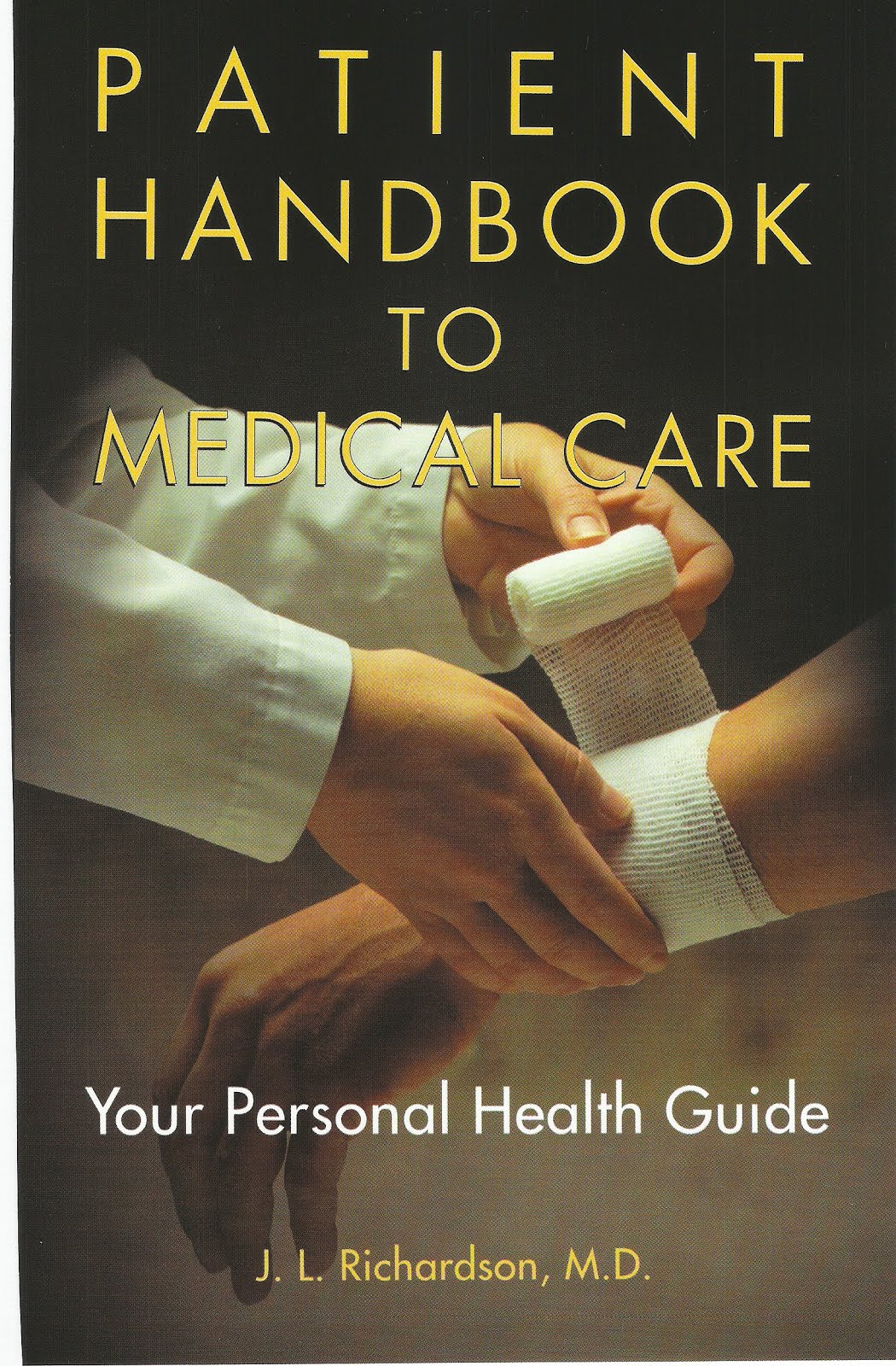miércoles, 29 de marzo de 2017
Abnormal Health Test Followup
What does the doctor do when a patient comes in with a test that they have done on their own? The patient has decided that I may need this test because heart disease, or cancer runs in my family, and they pose serious health risks. Should I have a heart scan, or a virtual colonoscopy? My doctor has told me that tests like these may find things that are benign, but something serious may show up. It could be something that would turn up in a few years and possibly be life threatening, but if I check now maybe I can do something about it.
What does the doctor do when a patient comes in with abnormal test results from a test they order and pay for themselves?
1. Repeat the test
2. Refer the patient to a specialist
3. Do more tests to check it out
4. Scold the patient and say “It’s okay. There’s nothing to worry about.”
Some doctors are concerned that some preventive medical tests will lead to unnecessary procedures that could harm patients. Often these tests may show abnormal things that are “normal”. Normal variants are common and usually cause no disease. Some abnormal normal findings do require further workup and treatment. Follow up with repeat interval testing and comparison of previous tests is a good way to check on abnormal tests. If all remains stable, a procedure may be unnecessary.
Health decisions require a team approach between patient and doctor. This is based on each individual patient's medical history. There are guidelines that help guide treatment, but they must be tailored for each individual patient. Any abnormal test results warrant follow up whether your doctor orders the test or you do. Best health!
jueves, 23 de marzo de 2017
Healthy Life Lines: Simple Tips to Improve Your Health
Live healthy. Live simply. Check out new book "Healthy Life Lines: Simple Tips to Improve Your Health" http://amzn.to/2nLf1u0. This short book consists of one line health tips for better health and wellness. These tips will encourage you to live a lifestyle of good health. "Healthy Life Lines: Simple Tips to Improve Your Health" is available FREE on Kindle Unlimited.
Healthy life lines include:
Healthy life lines include:
- Be literate in health.
- Focus on prevention to avoid intervention.
- Constantly do things to improve your health.
- Embrace healthy routines.
- Limit and avoid multitasking.
- Find funny and laugh daily.
- Keep a health diary.
Etiquetas:
doctors,
family medicine,
health,
health literacy,
healthcare,
men's health,
prevention,
self care,
wellness,
women's health
lunes, 20 de marzo de 2017
Medical Treatments For Your Good Health
Are you willing to pay extra for treatments that your insurance does not cover? Whether it is conventional medical therapy or alternative treatment, it can be hard to know what to do. Two free, nonprescription treatments, prayer and meditation, are tops in alternative treatments patients use. Why? Because it works. So why aren't more doctors recommending it along with all the other treatments? Why does conventional treatment get first choice?
Massage, acupuncture and other alternative modalities can be just as effective with better results, less side effects. Treatments and medicines used over 2000 years ago on Eastern medicine are often dismissed and discouraged as fist line treatments. Evidence based studies is the buzzword for medical treatments that works best today. Drug trials done over a few months to years take precedence over tried and true alternative treatments from thousands of years ago.
One size does not fit all. Treatments must be customized to each patient. This takes careful history taking, physical exam, in conjunction with other tests - conventional and alternative. All aspects of medical treatment must be respected and offered to patients so they can make a fully informed medical decision.
Even more discouraging is that health insurance covers any alternative treatments. For a person with a chronic conditions like arthritis, insurance will cover addictive potent pain medications when routine massages and/or acupuncture and/or routine physical therapy offer better pain control, and ongoing daily function.
If drug dependence to the point of drug addiction occurs, treatment is covered by insurance over non addicting complimentary treatment even though rehabilitation for addiction will incur extra cost and suffering for the patient. What began as arthritis pain can turn into drug dependence and adverse reactions with other side effects that may require rehabilitation or more drugs. This can add at least two or more new diagnoses for the patient which may require some self pay in addition to insurance coverage.
Seek out other therapies for your diagnosis. Many chronic conditions can be helped with proper diet, exercise, prayer, etc. The healing activity must be continuous and maintained routinely to get good results. Good lifestyle changes should be incorporated into daily life. As one learns to take pills daily so can one learn healthy routines that improve their quality of life. Best health!
Massage, acupuncture and other alternative modalities can be just as effective with better results, less side effects. Treatments and medicines used over 2000 years ago on Eastern medicine are often dismissed and discouraged as fist line treatments. Evidence based studies is the buzzword for medical treatments that works best today. Drug trials done over a few months to years take precedence over tried and true alternative treatments from thousands of years ago.
One size does not fit all. Treatments must be customized to each patient. This takes careful history taking, physical exam, in conjunction with other tests - conventional and alternative. All aspects of medical treatment must be respected and offered to patients so they can make a fully informed medical decision.
Even more discouraging is that health insurance covers any alternative treatments. For a person with a chronic conditions like arthritis, insurance will cover addictive potent pain medications when routine massages and/or acupuncture and/or routine physical therapy offer better pain control, and ongoing daily function.
If drug dependence to the point of drug addiction occurs, treatment is covered by insurance over non addicting complimentary treatment even though rehabilitation for addiction will incur extra cost and suffering for the patient. What began as arthritis pain can turn into drug dependence and adverse reactions with other side effects that may require rehabilitation or more drugs. This can add at least two or more new diagnoses for the patient which may require some self pay in addition to insurance coverage.
Seek out other therapies for your diagnosis. Many chronic conditions can be helped with proper diet, exercise, prayer, etc. The healing activity must be continuous and maintained routinely to get good results. Good lifestyle changes should be incorporated into daily life. As one learns to take pills daily so can one learn healthy routines that improve their quality of life. Best health!
Etiquetas:
alternative medicine,
complimentary medicine,
diet,
doctors,
exercise,
health,
healthcare,
medical,
men's health,
wellness,
women's health
martes, 7 de marzo de 2017
Doctor Visit Tips
Visits to your doctor or any healthcare provider can be frustrating and time consuming for all involved. These are some things you can do to make it an easier and more productive.
One of the first things you want to do is make a written or typed medical history to take with you, especially if this is your first visit to a new doctor. Make a copy for you and your doctor. You both will be able to refer to it as needed. This will save valuable time, and give you and your doctor more time to talk instead of flipping through your medical record. It can be difficult trying to "remember" what test or procedure you had 10 years ago or even last year.
It is a good to make appointments when you are well and stable. Keep a list of things you want to talk to your doctor about. Update the list before each visit. This way you will be able to keep track of what has been discussed, and what needs to be discussed. Try to talk about the most important things first especially those that need immediate attention. Each time you go for your visit, you can refer to your list and take up where you left off. Be sure to express your immediate concerns first. We all know how short a doctor visit can be.
Request copies of your medical records from all your doctors. "The medical record is the cornerstone of keeping track of everything pertaining to your health." This gives you a complete assessment of all your medical problems. You will be able to check the accuracy of your records, and bring any errors or absent information to your doctor's attention. Let your doctor know about anything you do not understand, or if there is something you are unable to read due to poor handwriting. It is surprising to see how many doctors are often unable to read their own writing.
Schedule your appointment for first available times in the morning or afternoon.* This will likely ensure that you will be seen on time with a shorter wait time and longer visit. It will help you and your doctor focus on your total health care versus acute, intermittent health concerns that can easily take up your whole time. Unless an emergency arises, the wait should be less than 15 minutes. If there is an emergency you should be notified and given the option of waiting or rescheduling, or going elsewhere for treatment.
The easiest thing you can do is be on time. Best health!
*How to Make Your Doctor Appointment http://bit.ly/akMrpX
by J.L, Richardson, M.D., family medicine expert and author of Patient Handbook to Medical Care: Your Personal Health Guide, honorable mention of Writer's Digest International Self-Published Book Award** and Indie Excellence Award finalist.
(**Written by a reliable source, this book is the perfect quick reference for all of those squeamish people who hate going to the doctor. I am one of those people. I hate wondering why a certain test was performed, exactly what a common diagnosis may mean, what the proper specialist for my malady might be called, and negotiating the maze of health insurance forms and other paperwork that seems to accompany my ailment; thereby adding insult to injury. To avoid the mystery, misery, and tedium of the wellness process, I often remain sick in order to forego or delay much needed medical appointments. The author writes for people like me; she writes in a calming, professional tone and explains, in as simple and non-threatening a manner as possible, what I can expect along every step of the healing process. By learning to keep a medical diary, knowing what to expect of my medical staff as well as how to decode their complicated language, and then by understanding the basics of the complex American healthcare system, I can take charge of my own healthcare. This little book provides me with all the tools necessary to do just that. ~Writer's Digest)
Suscribirse a:
Entradas (Atom)


